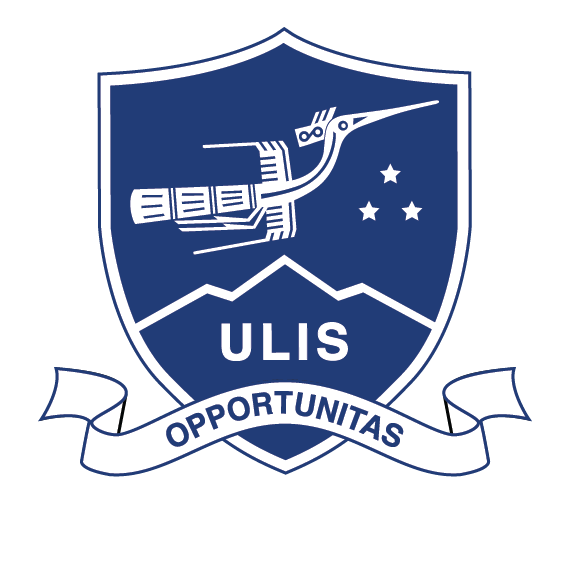Undergraduate
Get news from ULIS in your email address each weekend
ULIS – VNU currently provides 15 programs of 2 majors: Language Teacher Education and Foreign Languages. All courses at ULIS – VNU are outcome-based in their design and aim at developing students’ comprehensive competence on three areas: knowledge, occupational skills – soft skills, and other qualities required for students’ high employability and successful career upon graduation.
Upon program completion, in terms of language competence, students of Standard Programs are expected to achieve Level 5 of the Six-level Vietnam’s Framework of Reference for Languages (VFR) for their first foreign language which is their major (equivalent to C1 in the Common European Framework of Reference for Languages CEFR) and Level 3 for the second foreign language (i.e. B1 in CEFR), whereas students of Fast Track Programs are expected to achieve Level 5 VFR for their first foreign language which is their major and Level 4 for the second foreign language (i.e. B2 in CEFR). After finishing language skills subjects, students can accumulate the related knowledge of linguistics, semantics, literature, cross-cultural communication, country studies (regarding people, culture, economics, society, politics, education, amongst others), presentation skills, critical thinking skills, teamwork skills, interdisciplinary research skills, debate skills and other related knowledge and skills.
Achieving Level 5 of a foreign language is one significant final learning outcome for graduates of Foreign Language Teacher Education at ULIS – VNU. This meets the MOET’s requirement to become foreign language teachers at training institutions of the public education system.
Besides ULIS’s traditional training programs, i.e. Language teacher education and Translation and Interpreting, undergraduates of Foreign Language majors can choose other specializations such as Economics, Management, Applied Linguistics, Tourism, International studies, etc.
After graduation, holders of bachelor’s degrees in Foreign Language Teacher Education are capable of teaching foreign languages at secondary schools, high schools, colleges and universities. They can also further their education and improve important personal qualities and occupational skills to excel in their teaching jobs or management positions related to foreign language education, teaching and research.
FOREIGN LANGUAGE TEACHER EDUCATION PROGRAMS
The Bachelor of Foreign Language Teacher Education programs include 5 foreign languages: English, Chinese, German, Japanese and Korean. These programs aim at training high-quality human resources in the field of foreign language education with professional working capacity, creativity and the ability to lead innovation and creativity in the changing context of the 21st century as well as perform necessary professional qualities and ethics. Upon graduation of Foreign Language Teacher Education programs, learners will have the ability to teach, research, lead and contribute to the community in the field of foreign language education and related fields. The Foreign Language Teacher Education programs set specific goals for learners as follows:
Secure foreign language proficiency at Level 5 according to the Six-level Vietnam’s Framework of Reference for Languages (VFR);
Effectively apply linguistic, cultural and social knowledge; knowledge about learners and foreign language teaching activities; and knowledge of information technology to creative and effective professional performance;
Know how to analyse and evaluate development trends in the field of foreign language education to provide appropriate professional solutions throughout their career;
Be capable of self-training and professional development; be able to lead and manage in their profession, constantly learn to develop themselves.
Upon graduation, graduates of Foreign Language Teacher Education programs can take on positions such as teachers at foreign language teaching institutions at all levels in Vietnam's educational system, especially at high schools or universities, or researchers of foreign language education, linguistics, or international studies.
LANGUAGE TRAINING PROGRAMS
The Bachelor of language training programs include 7 foreign languages: English, Chinese, German, Japanese, Korean, Russian, French and Arabic. These programs aim at training high-quality human resources in the fields of language, culture, education and society with professional and creative working capacity, ability to lead innovation and creativity in the changing context of the 21st century as well as perform necessary professional qualities and ethics. Upon graduation of language training programs, learners will have the ability to teach, research, lead and contribute to the community in fields related to their training orientations. The programs will provide learners with skills to effectively apply linguistic, cultural and social knowledge, interdisciplinary knowledge (translation-interpretation, economics, tourism), and information technology knowledge to creative and effective professional performance.
The bachelor's degree programs in Languages with different orientations creates a diversity of job positions that students can undertake after graduation:
English Language: Translation and Interpretation Orientation, Management Orientation, Commerce & Business Orientation, Language and Culture Orientation, International Studies Orientation.
Russian Language: Translation and Interpretation Orientation, Tourism Orientation.
French Language: Translation and Interpretation Orientation, Economic Orientation, Tourism Orientation, Communication Orientation.
Chinese Language: Translation and Interpretation Orientation, Economic Orientation.
German Language: Translation and Interpretation Orientation, Economic Orientation, Tourism Orientation.
Japanese Language: Translation and Interpretation Orientation, Management - Business Orientation, Language and Culture Orientation.
Korean Language: Translation and Interpretation Orientation, Language and Culture Orientation, Korean Studies Orientation.
Arabic Language
Transnational Culture and Communication program: Being trained according to the philosophy of liberal education, learners can develop interdisciplinary knowledge of language, culture-society, journalism-communication and science from the perspective of history. They can also get hold of the local, regional, and global cultural and media trends to be able to research, analyse, evaluate media phenomena, and create cultural and media products. Learners are able to use research skills effectively, apply information technology (IT) and 21st century skills to creating and processing media products; develop a global mindset, the ability to lead and manage their profession; be professionally self-oriented and constantly learn to develop themselves.
- Please click here to see the requirements of the full-time program.
Mobile: 024 37547988
Email: ulis.international@vnu.edu.vn

